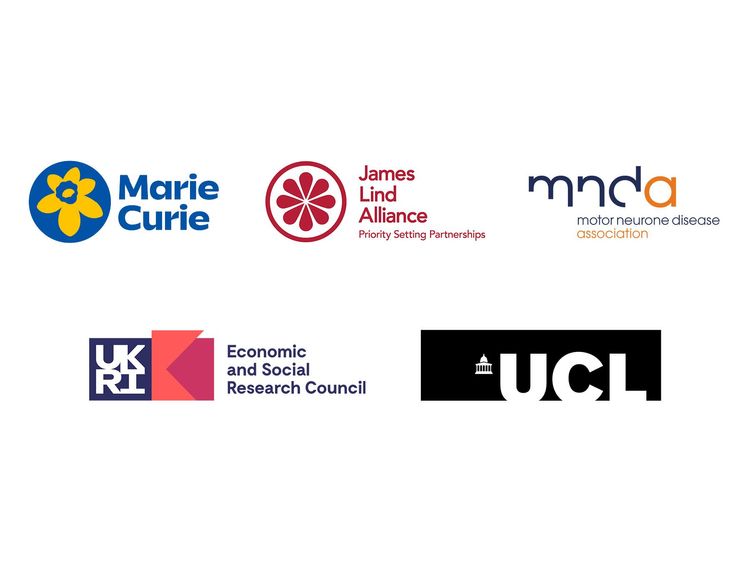In partnership with the James Lind Alliance (JLA) and other organisations with co-funding from the Motor Neurone Disease (MND) Association and the Economic and Social Research Council (ESRC) as part of UK Research and Innovation, Marie Curie has established new priorities for palliative care and end of life care research.
Watch the National Institute for Health and Care Research rolling funding calls explained.
Watch: Our new research prioritiesWatch: Our new research priorities
Project overview
We set out to find out what people with lived and professional experience of palliative and end of life care thought future research should focus on.
We ran a similar project in 2015. However, a lot has changed since then. We wanted to make sure that future research addresses the issues and problems that are important to people with a serious, life-limiting illness, their families and those that support them.
We launched a short survey from September 2023 to February 2024. Over 1,000 people responded, telling us what they thought future palliative and end of life care research should focus on. With the help from researchers at University College London, we grouped the responses into a list of 79 priorities. Then we checked whether there was already evidence available that were aiming to address those priorities.
We launched a second survey which ran from June to September 2024. This asked people with serious life-limiting illness, those close to them, and health and social care professionals to shortlist the priorities important to them.
Finally, we held a prioritisation workshop with representatives from the same groups to help decide the top ten priorities.
Watch rolling funding calls explained
Watch: A discussion on the National Institute for Health and Care Research Rolling Funding Calls with the James Lind Alliance, the Department o…Watch: A discussion on the National Institute for Health and Care Research Rolling Funding Calls with the J…
Top ten priorities
The top 10 priorities for palliative and end of life care research are:
- How do people with dementia experience end of life? How can palliative and end of life care better meet their needs and those of their carers, friends and families?
- How can NHS, social services and charities work more collaboratively to provide joined-up care that better meets the needs of people with a serious life-limiting illness and their carers, friends and families?
- What kinds of palliative and end of life care and support need to be in place to enable people to die well at home? What skills do staff need? What helps or hinders the delivery of care at home?
- What are the best ways to provide personalised palliative and end of life care that meets all the physical, mental, practical, social and spiritual needs of a person with a serious life-limiting illness?
- How can palliative and end of life care better meet the complex needs of people with multiple health conditions?
- How can communication and care co-ordination be improved across the teams of health and social care professionals caring for people with any serious life-limiting illness?
- What skills, training and information do carers, friends and family members need to be able to care for someone who is dying at home (eg giving medicines safely by injection, managing incontinence, moving people)? What is the impact (pros and cons) of upskilling the people giving care?
- How can the quality of palliative and end of life care in hospital be improved? What helps or hinders improvement?
- What are the best ways to provide palliative and end of life care, support and advice at all hours (24/7 or out of hours)?
- How can palliative and end of life care meet the needs of people who live alone, or are socially isolated?
See all 24 priorities
See project reference list
Who is involved?
The palliative and end of life care research priority setting partnership is led by Marie Curie, with research support from University College London. The project is independently overseen by the James Lind Alliance. We are also very grateful for the support from our funding partners the Motor Neurone Disease Association and the Economic Social Research Council (ESRC) as part of UK Research and Innovation.

Learn more about who is involved
Contact us
Please help us by sharing these priorities widely.
If you have any questions about the priorities or would like to get in touch with the team, please email us.
